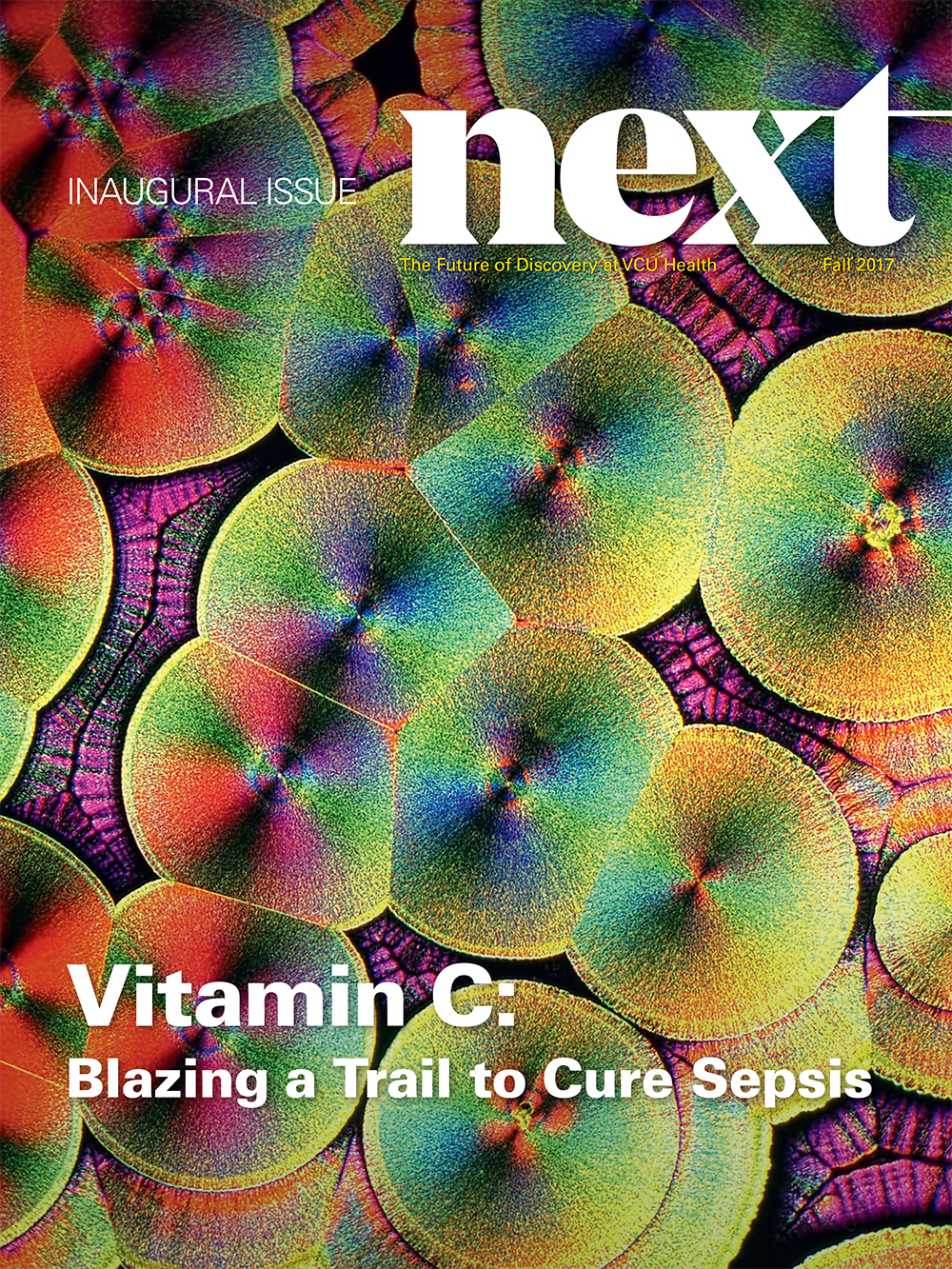MCV Foundation Publishes NEXT Magazine, Illuminating Innovation at VCU Health
 The MCV Campus at VCU Health is a hub of discovery and innovation that has borne life-saving patient care, catalytic research and formative education for nearly 180 years. Historically, it has led the nation in areas such as burn care, transplantation and curriculum development.
The MCV Campus at VCU Health is a hub of discovery and innovation that has borne life-saving patient care, catalytic research and formative education for nearly 180 years. Historically, it has led the nation in areas such as burn care, transplantation and curriculum development.
Today, the MCV Campus is one of the top academic health centers in the country, linking five schools of health sciences, the region’s only full-service children’s hospital, a Level I trauma center and one of only two NCI cancer center designations in Virginia.
It is the power and breadth of discovery happening every day in these academic and healthcare units, right here in Richmond, Virginia, that has inspired us to begin publishing an account of the MCV Campus’s extraordinary innovations.
That account is called NEXT, and this month we distributed its inaugural issue.
In this first issue of NEXT, we explore Dr. Berry Fowler’s transformational work using Vitamin C as a cure for sepsis, which is the leading cause of death in U.S. hospitals. We also highlight the expansion of Dr. Kenneth Kendler’s landmark study identifying risk genes for clinical depression, Drs. Michael Hindle and Worth Longest’s quest to completely change how effectively medications are delivered to the lungs, and two different projects that could change the way patients with cancer are treated, potentially reducing the devastating side effects of traditional treatments.
We also look to the past as this December marks the 50th anniversary of the world’s first human-to-human heart transplant, an accomplishment to which MCV surgeon Dr. Richard Lower contributed immensely.
Dr. Lower, and physicians like him, helped lay the foundation for the VCU Health Hume-Lee Transplant Center, which we examine in this issue of NEXT as home to the region’s first islet cell transplantation program that offers a lifeline to patients with chronic pancreatitis who have tried conventional therapies without success.
These advancements, and the thirst for innovation that drives them, are part of VCU Health’s reach through the community and around the globe, to human beings who are sick and in need of help.
We are humbled and honored to have the opportunity to chronicle this pursuit of discovery as VCU Health’s doctors, dentists, pharmacists, nurses, therapists, technicians, researchers, educators and students advance the MCV Campus’s tradition and mission of improving the human condition.
Many of you will receive your copy of NEXT in the mail this week. If you would like to view the inaugural issue online, please click here. If you aren’t on our mailing list and would like to be added to receive future issues, please subscribe here.


